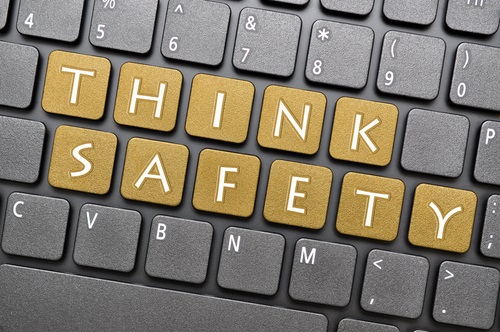
7NEWS Consumer Exclusive reports about “the latest trends and warnings” that concern a child’s online safety.
According to Heidi Witthuhn of Spartanburg, South Carolina, she loves using her online platforms to spread positive messages. However, the 16-year-old has already experienced the dark side of being on social media. Witthuhn said she found out that the younger you are, the more predators and bullies come for you on social media.
Rick Floyd of Greenville County School’s Information Security agrees with what Witthuhn said, stating he has seen this firsthand when he was still in law enforcement, catching predators.
Floyd said when he was doing “undercover chatting” during his days in law enforcement, there were no gifts or money involved. Today, kids can receive gifts and they can make money without leaving their homes or going out of their rooms.
Floyd said predators have also been helping teens set up online money transfer accounts. He warns parents and other adults that when teens are live streaming on sites like TikTok, many inappropriate requests come in.
Witthuhn said when she first joined TikTok, there were “so many weird browser people” looking for her, telling her “To add them and do stuff and everything.” She asked her mom for help.
Furthermore, many kids and parents aren’t aware of that Instagram and Snapchat reveal a user’s precise location unless you proactively turn it off.
Witthuhn said if they zoom in, these predators can see where you live because these platforms will show pictures of your house.
Witthuhn tells parents that kids who have to earn their freedom online, typically has a healthy appreciation for the responsibility that comes with easy access to the internet.
Witthuhn’s mother said she uses a free third-party monitoring app, Google Family Link. It sets time limits and tracks location. It also filters what her kids can do online, what apps they download and which websites they need permission to access.
Another mom, Heather Whaldrep, warns, however, that parents should not just rely on checking their children’s phones. She reminds them that, in Snapchat, for example, users can say something inappropriate and it disappears immediately or after 24 hours of viewing them.
There are also some apps that disguise other apps, or hide photos. A sure way to prevent kids from downloading these apps is for parents to have sole access to the username and password for downloads. Diane Lee “Your Child’s Online Safety” (Sep. 26, 2022).
Commentary and Checklist
According to enough.org, in 2021, Bark, a parental control tool, analyzed more than 3.4 billion messages across texts, email and more than 30 apps and social media platforms. Here are some of their findings:
- 9.95 percent of tweens and 20.54 percent of teens encountered predatory behaviors from someone online.
- 68.97 percent of tweens and 90.73 percent of teens encountered nudity or content of a sexual nature.
- 72.09 percent of tweens and 85.00 percent of teens experienced bullying as a bully, victim, or witness.
What can safe adults do to help protect children online? Here are some tips from the U.S. Department of Justice:
- Discuss internet safety and develop an online safety plan with children before they engage in online activities.
- Supervise children’s internet use.
- Review all games, apps, and social media sites before they are downloaded.
- Adjust the privacy settings on computers and other electronic devices children use and use parental control apps on these devices.
- Tell children not to share personal information, photos, and videos online in public forums or with people they do not know in real life.
- Teach children about body safety and boundaries and the importance of saying “no” to inappropriate requests online and in the physical world.
- Be alert to signs of online abuse (i.e., attempts to conceal online activity, angry outbursts, depression, anxiety, and withdrawn behavior).
- Encourage children to tell a safe adult if anyone asks them to engage in inappropriate behavior or to engage in sexual activity of any kind.
- If you suspect sexual exploitation of a child or online enticement of a child, call 911 immediately or contact the FBI at tips.fbi.gov, or file a report with the National Center for Missing & Exploited Children (NCMEC) at 1-800-843-5678 or report.cybertip.org.
To download the PDF version of this article, click here.
